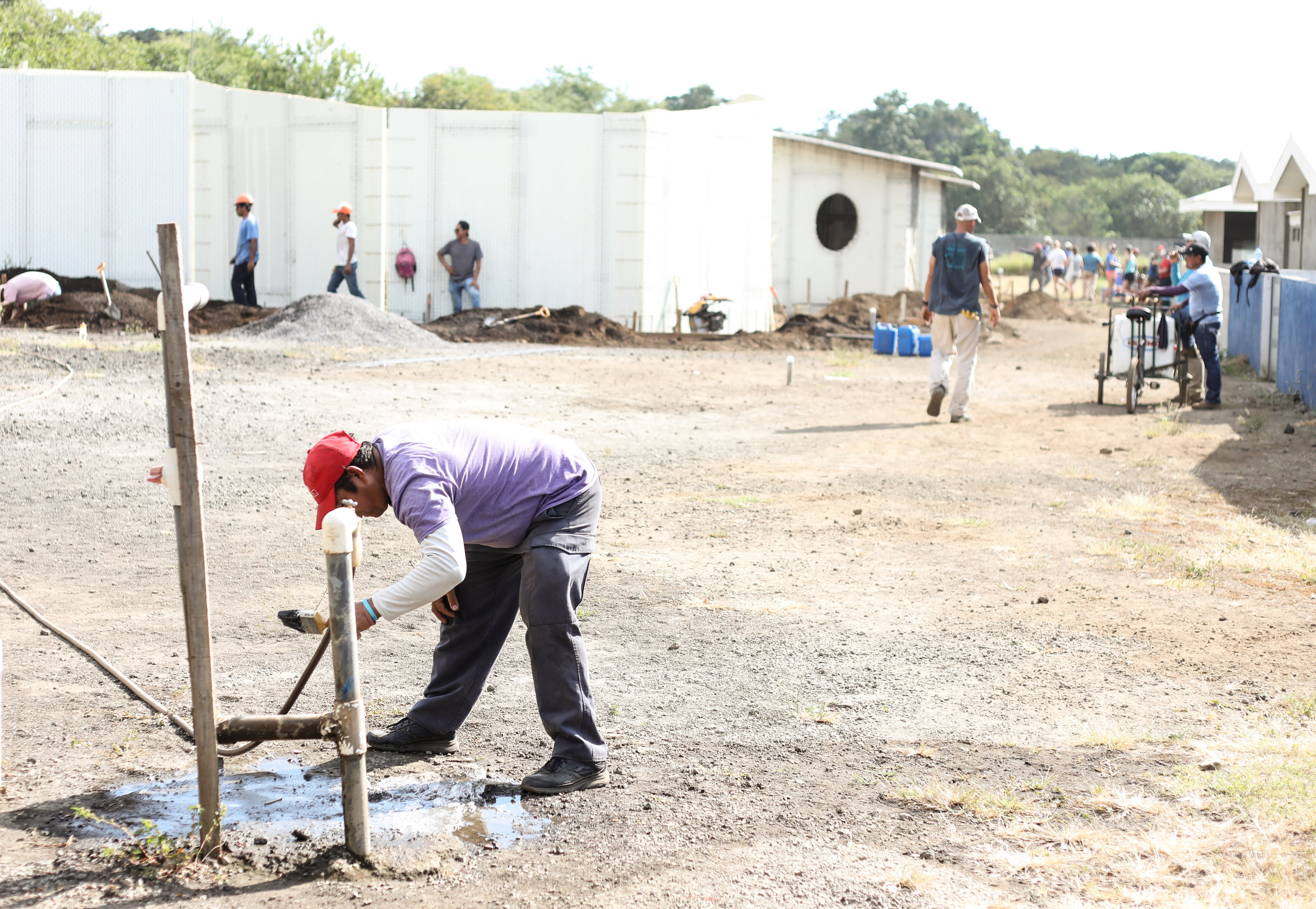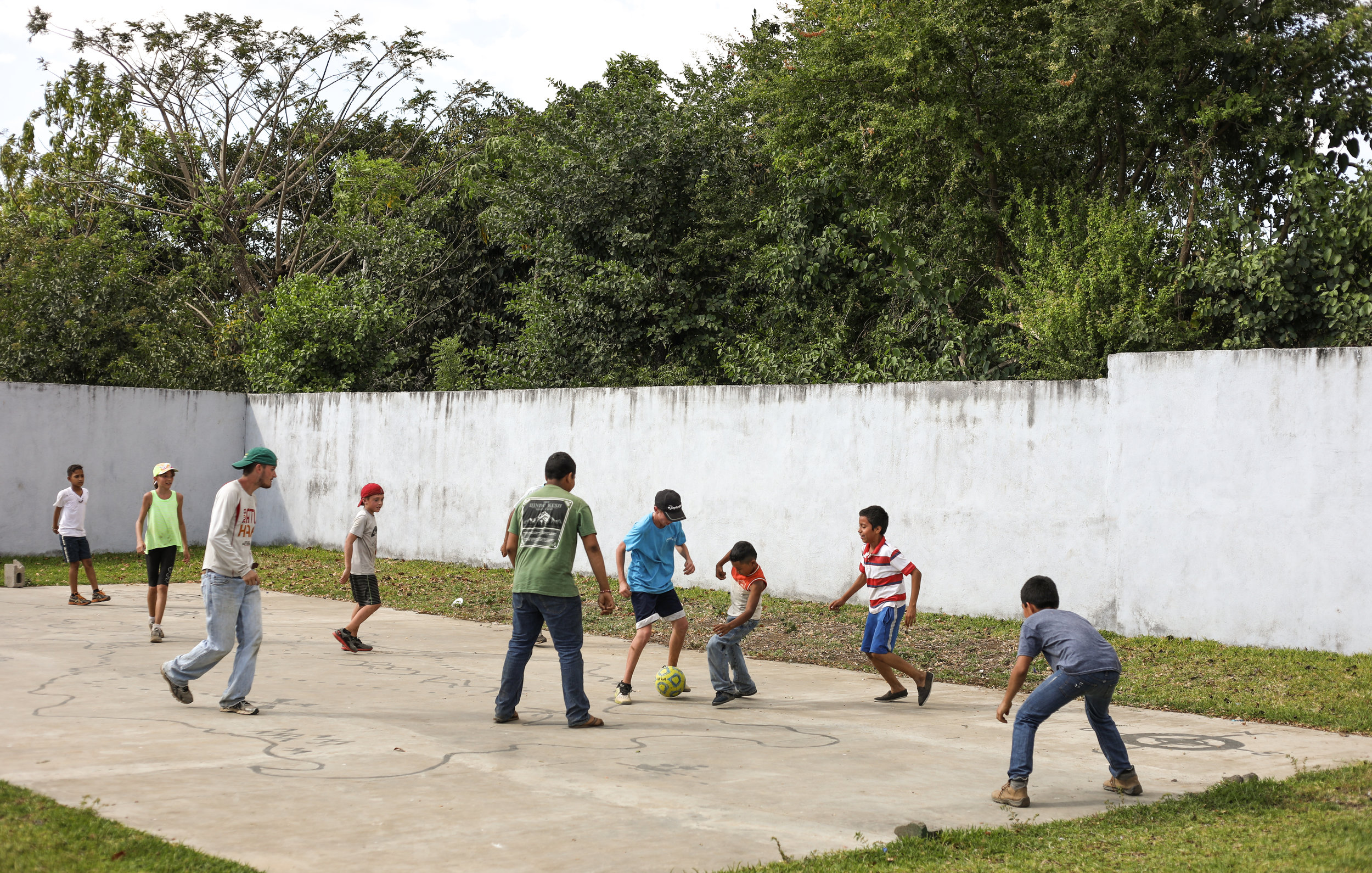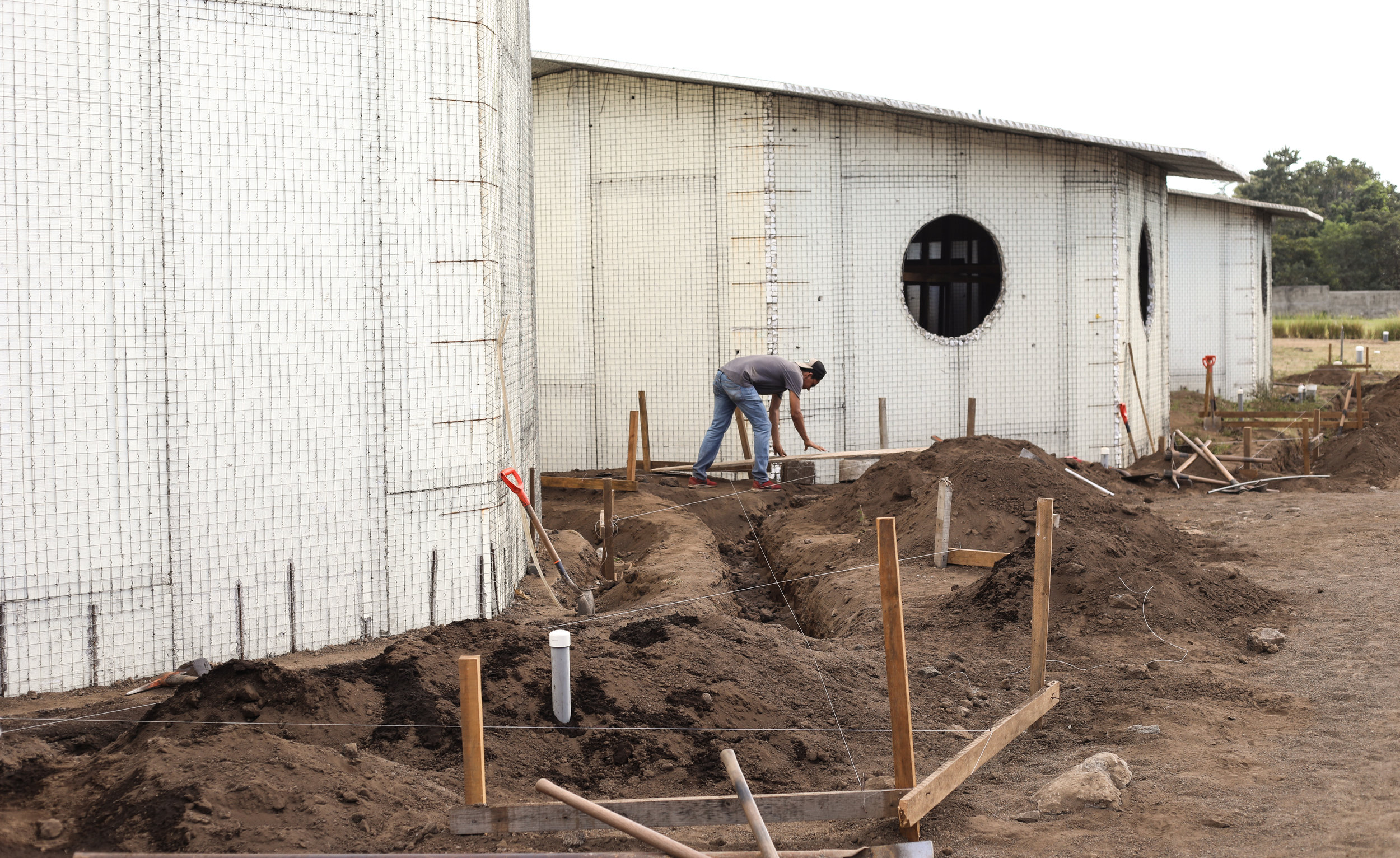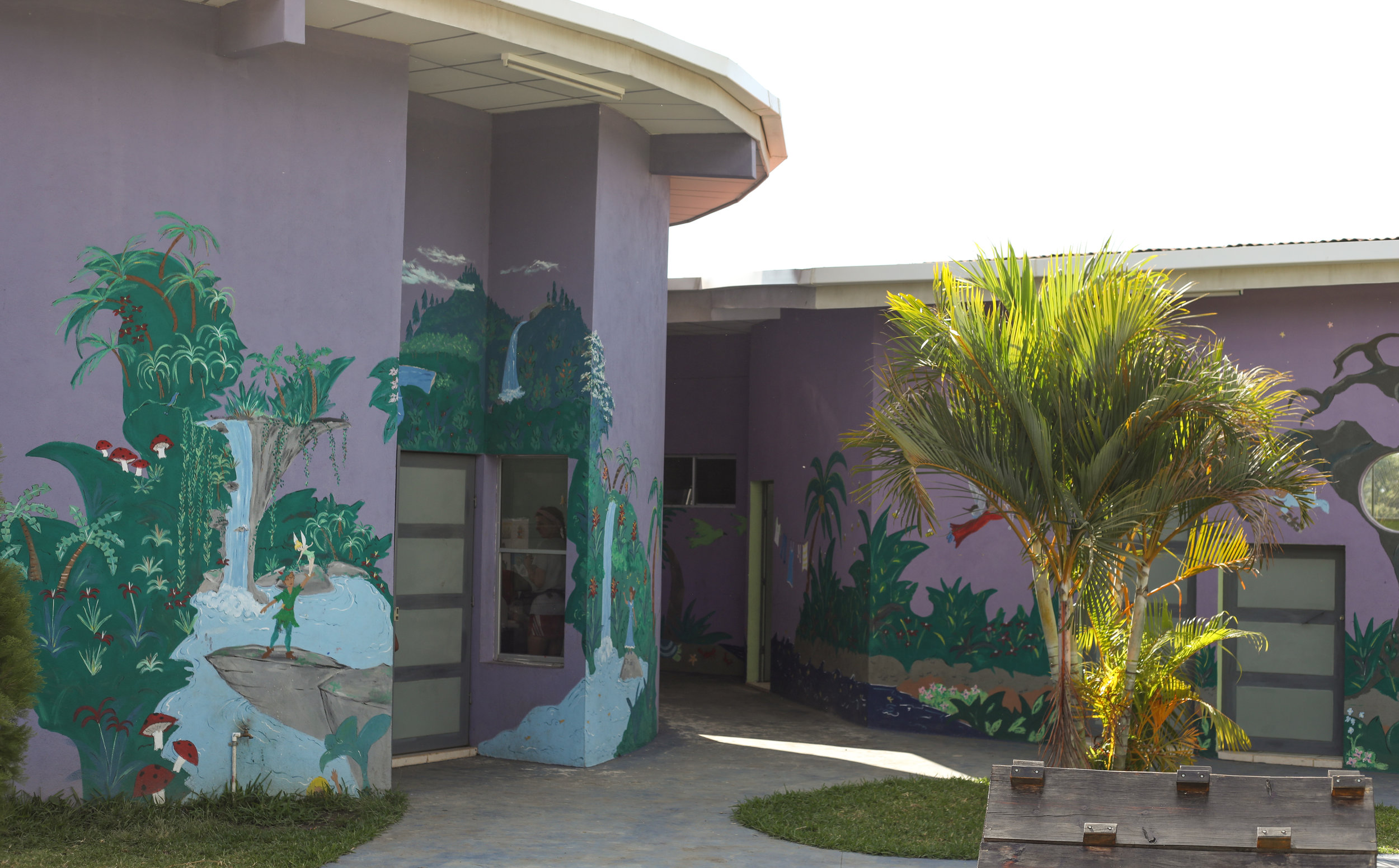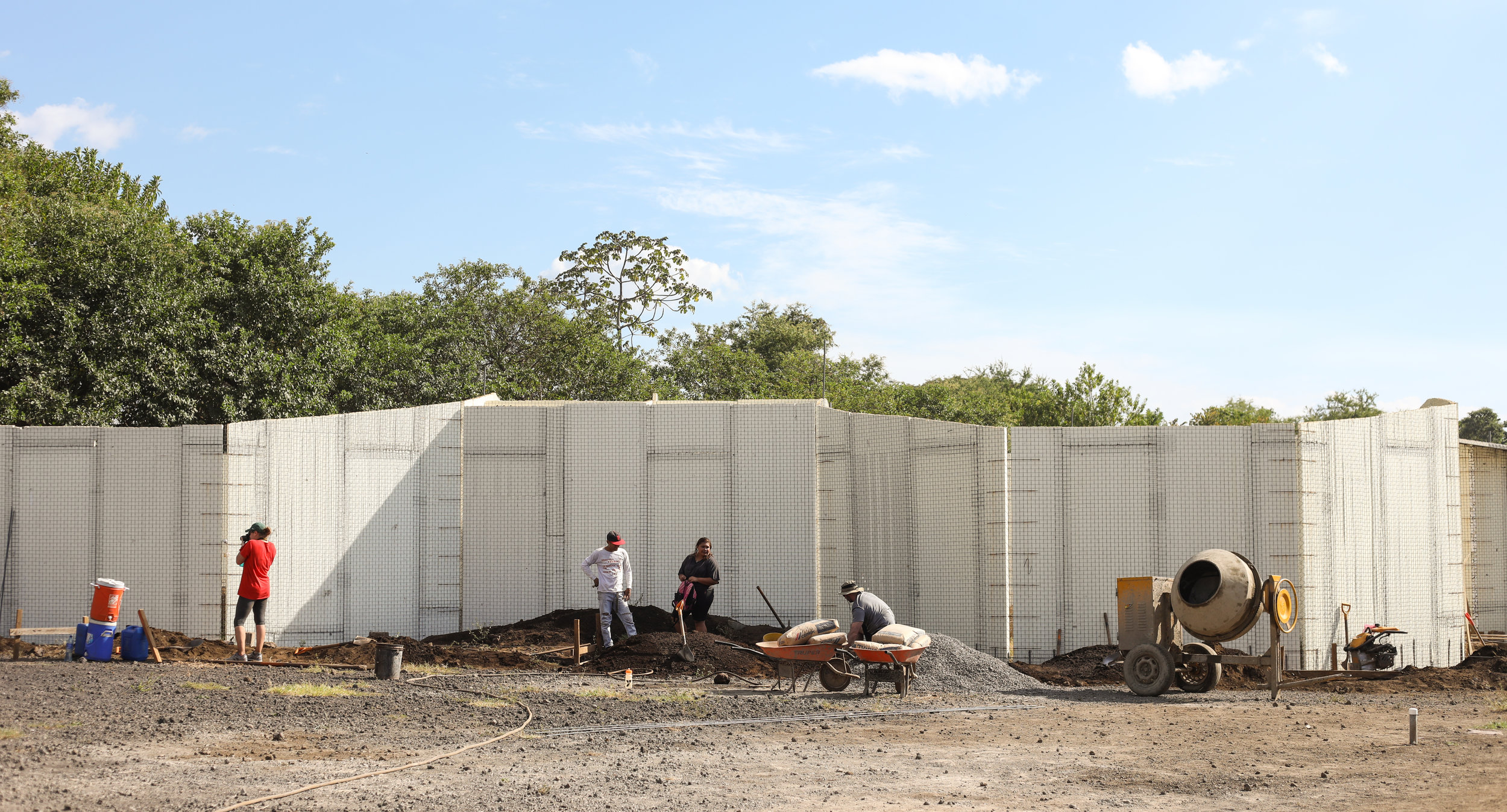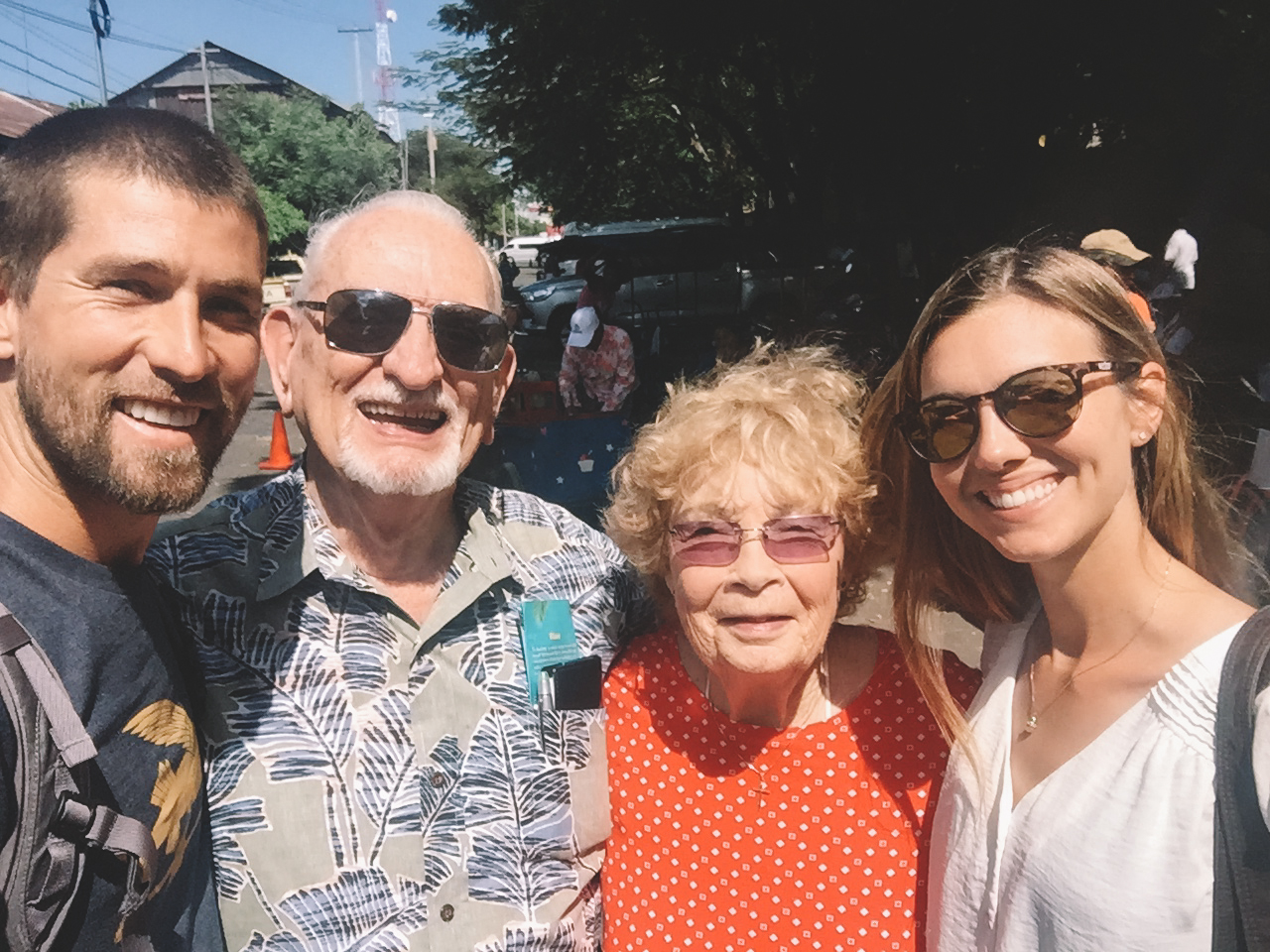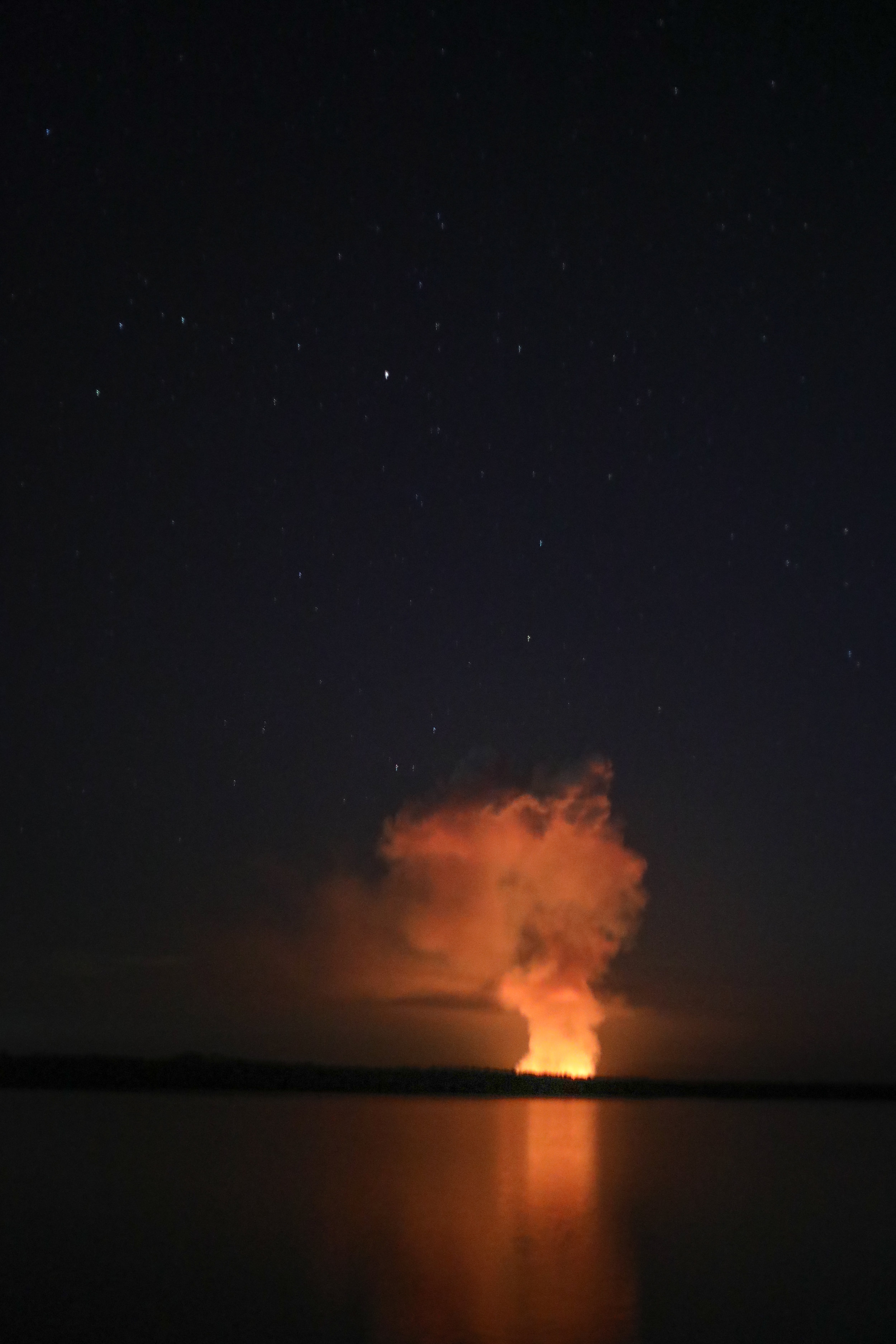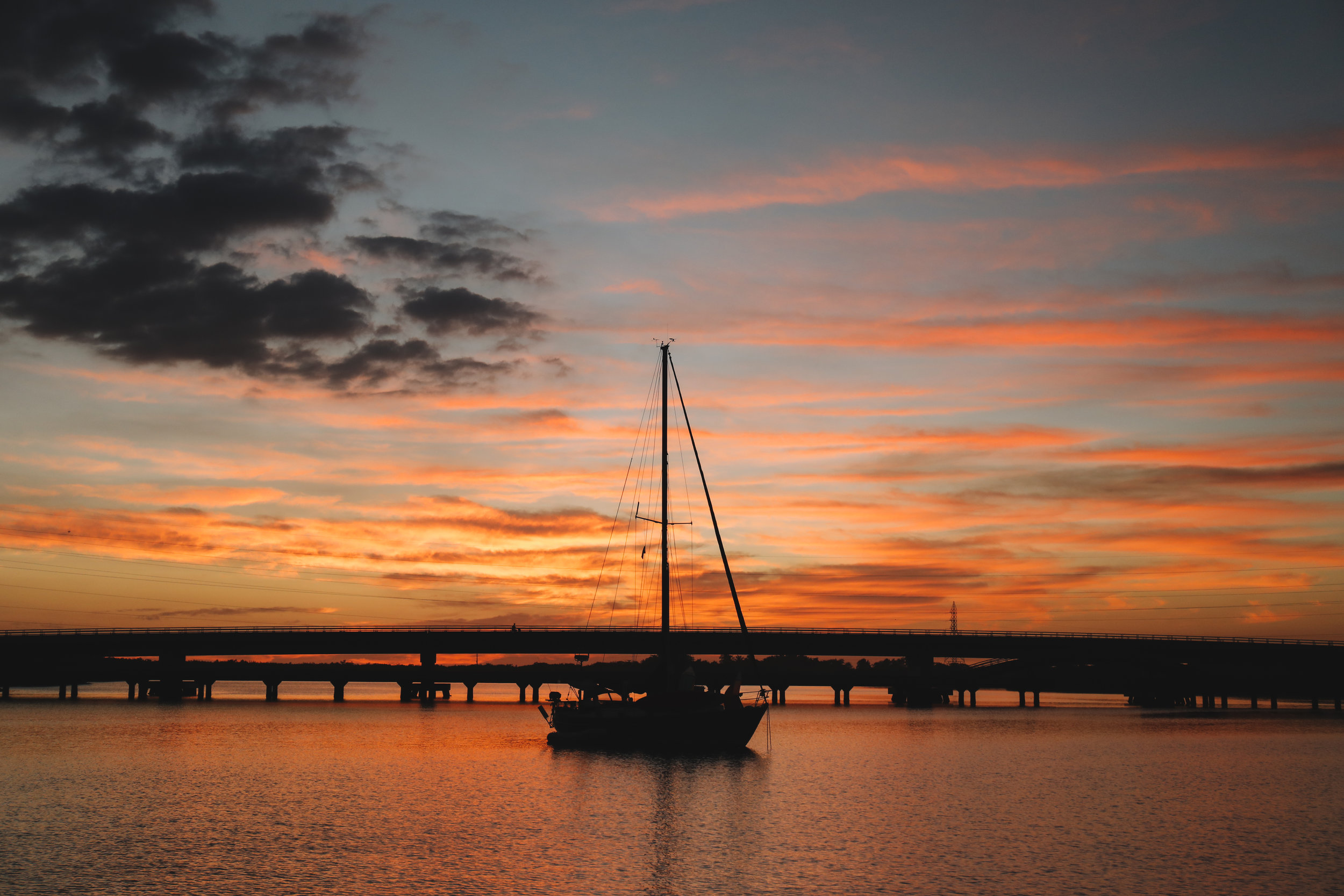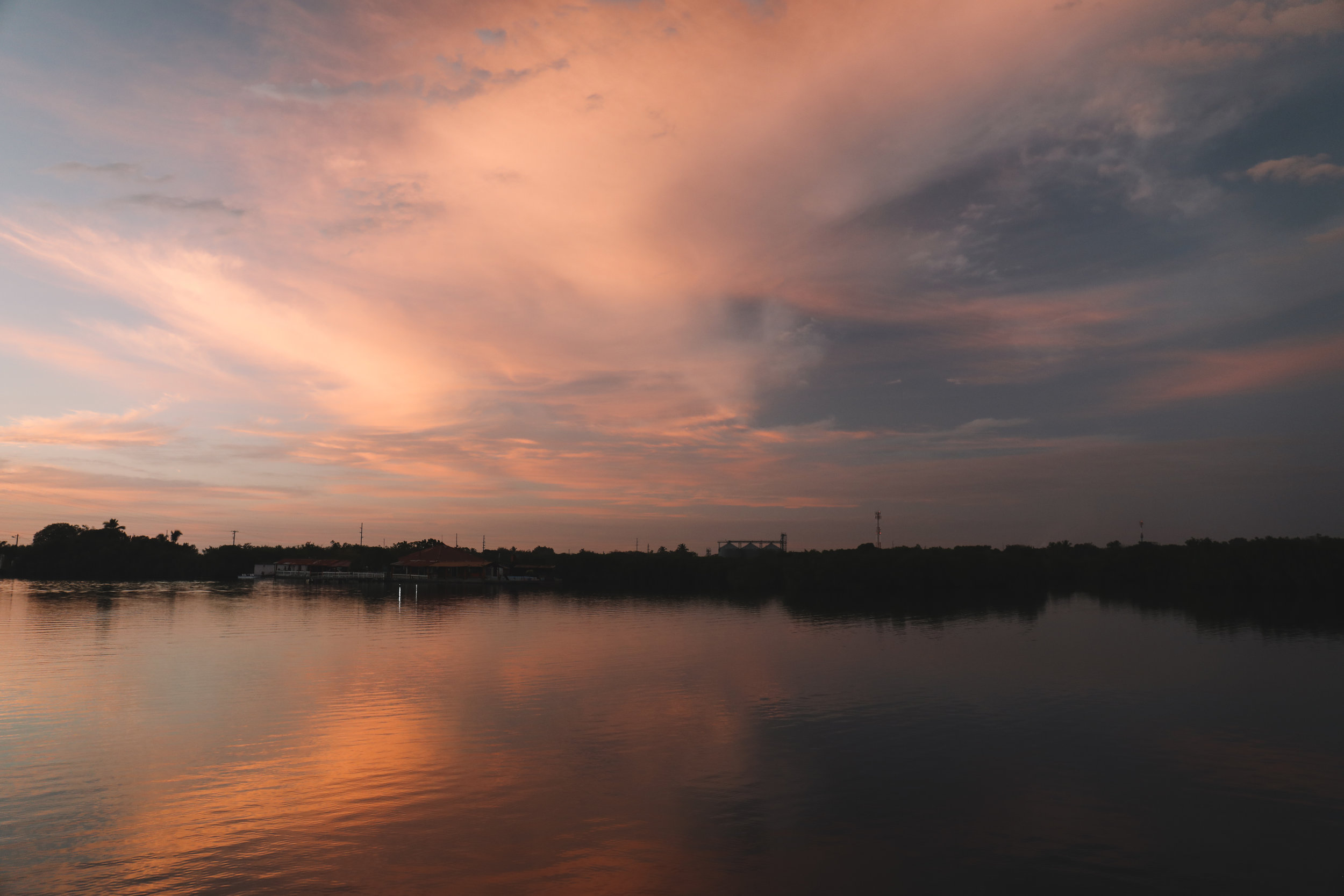Corinto / Amigos Por Christo
Only a two or three hour sail south of marina Puesta del Sol is the industrial port of Corinto. We pulled in with a full boat, Christianne, Josh, Jeff, Rachel and I. Motoring up the river as we passed the wide, industrialized port section, the scenery soon changed to thick mangroves and tight passages. Luckily the channel we would take to the “Bridge Anchorage” was wide, although at times very shallow. In sections it got to be less than 8 feet deep and we draw just over six feet, sometimes passing over the bottom with only inches to spare.
It was worth it though! Calm anchorages in Nicaragua are hard to come by and this one was right near the large city of Chinandega where we could easily get supplies. The actual town of Corinto is mostly there to support the port and be a facade for the cruise ships which refuel here. The town itself was established in 1863 and has an interesting history, over a hundred years ago when Nicaragua refused to pay Britain for annexation of the Mosquito Reserve, the British responded by occupying the port in April 1895, eventually leaving after some of the debt was paid. Then a year later on May 2, 1896, U.S. Marines landed in Corinto to protect American interests during the political unrest.
Finally, U.S. Forces mined the Port and on October 10, 1983, an attack directed by the CIA destroyed the port’s coastal fuel bunker, allowing 3.2 million gallons of fuel to leak into the ocean and streets, causing massive fires and an environmental disaster. Today with the exception of only a small placard, there are no signs of this historical turmoil.
We would stay here for two weeks exploring the city, meeting the Amigos por Christo team and waiting for my Grandfather to show up on one of the said cruise ships on his way to the Panama Canal.
Agape making her way up the river.
We had travelled into and through Chinandega a dozen or so times already and for the most part we didn't think much of the city. When you are just trying to provision the boat or make sure you catch the right bus connections in a sea of people, all yelling different and strange sounding towns at you it is hard to catch a breath, let alone take in a city. I bet it was our 14th or 15th time into Chinandega, and the third straight day in a row making the 20 minute taxi ride, but this time was different. We were taking our friend Christianne to the bus station early so she would make it on her early morning flight out of Managua. It was still cool out, and after saying our goodbyes I pitched the idea to Rachel that we should grab some gas station coffee and a ham and cheese croissant before riding the chicken bus back to the boat (it’s cheaper than taxis). Also, the gas station coffee here beats the freshest starbucks any day and the croissants, although microwaved, are pretty good too. Disclosure: I have low food standards at 7am. So we took our gas station breakfast and decided to explore the streets of the Chinandega while it was still cool!!!
The further we walked, the more the bustling, little town started to grow on us. There was not one other gringo in sight and we loved it! It felt like we were out of the tourist zones and into the real Nicaragua.
When we had been in a taxi earlier in the week we had asked about volunteer opportunities in the area and been told if we really wanted to help and really make a lasting impact on the community, we needed to check out a group called Amigos for Christ. In fact, we had asked several people the same question, and all of them recommended the same group.
Off to explore the near by mangroves with John from S/V Halcyon.
The calm and noisy anchorage in Corinto.
Surprised Grandpa on his cruise through Central America!
After getting in contact with one of the staff members, who turned out to be the founders daughter, we were invited to come in and check out their headquarters. We usually work with and contribute to orphanages, as we feel a calling on our lives to the children in need, so it was a totally different experience from any other group we had met since leaving. As we walked around the campus and saw the dorms for short terms missions groups, the cafeteria and offices, the staff instantly welcomed us and made us feel right at home.
When they tossed out the invitation to come and see the group in action the following day in one the local communities where they were building a school, we both excitedly agreed.
They next morning we showed up bright and early, ready to get to work and find out more about these amazing people who had uprooted their lives and families to come and work alongside the communities surrounding Chinandega. By the end of the day, Rachel and I had decided to stay a couple more days in this hot, dusty, busy little town!
We spent the next week learning about all the incredible projects that Amigos help organize and the unique and lasting ways they help these communities help themselves. We also fell in love with the staff! The people that Amigos has working for them, both local Nicaraguans and Americans, are some of the most genuine, loving and inviting people we have ever met on our travels. From dinner dates, to baseball games, even getting invited to spend a Sunday at one of their beach homes, these guys truly knew how to make us feel welcomed!
We were sad to say goodbye, but we plan to return this offseason to volunteer more long term with Amigos por Christo. Our hearts were moved in new ways, and we feel there is more for us to experience in Nicaragua and alongside this amazing team. Please consider learning more about Amigos and the work that they do, or even organize a trip down to get your hands dirty for a truly moving experience.
For more information on Amigos por Christo: http://amigosforchrist.org or email them at info@amigosforchrist.org
More from Amigos for Christo’s website: "The need in Nicaragua is great; it's the second poorest country in the western hemisphere. In Nicaragua, kidney disease kills more people each year than in any other nation. Most children don't finish the sixth grade. Skin disease, parasites, and respiratory disease run rampant. Improved health and family life are impossible to achieve alone, yet hope remains.
Amigos por Christo works shoulder-to-shoulder with Nicaraguan neighbors (vecinos) to bring clean water, health, education, and economic opportunity to rural communities in need.
Amigos for Christ is a nonprofit organization that facilitates leadership, water, health, education, and economic development in rural Nicaraguan communities. Our mission is to serve, so that Christ becomes more visible. Our vision is to be a model cross-cultural community development organization.
We practice being good neighbors (vecinos). Vecinos who listen well, build infrastructure for change, and pick up a shovel when the time comes. Vecinos who invest our lives in Nicaraguan life.
Our focuses are:
LEADERSHIP DEVELOPMENT: Developing community leaders to change their own community is at the very core of what we do. We bring leaders together to share ideas, learn strategies, and to inspire hope in the future of their community.
TECHNICAL TRAINING: Infrastructure requires technical knowledge. We teach leaders how to own and manage their water systems and other infrastructure so that they are equipped and prepared for regular maintenance and repairs. We don't want them to need us, but we are always there for advice.
WATER SYSTEMS:We have learned that wells are not enough. We bring water to each family's home to ensure access to clean, abundant water. Each family connection is complete with a water meter.
MODERN BATHROOMS: Stop the cycle of parasites and diarrhea, the leading cause of death for kids under 5 in Nicaragua.
WHY CLEAN WATER: Lack of clean water is a leading cause of kidney disease in Nicaragua. Women and children spend hours a day walking to collect dirty water for their families. Clean water means improved health, education, and income.
PREVENTIVE CARE: Local families model healthy behavior to neighbors. We are committed to building lasting community relationships and working alongside local Nicaraguans to teach families proper hygiene and sanitation habits.
CLEAN AIR KITCHENS: Affordable kitchens that feature a smokeless stove and a tiled food preparation area can prevent sickness and disease caused by unhealthy food preparation conditions.
RESTORATIVE CARE: Existing infrastructure gains strength benefiting underserved patients. We enter into communities helping those in need of minor care. Providing some vitamins, medications or referrals is another we are committed to improving rural communities health.
SURGICAL CARE: Services for those who are suffering with no alternatives. Several times a year medical brigades from the United States come to Nicaragua to assist with surgeries for Nicaraguans that are in need.
INVESTING IN THE FUTURE: In rural Nicaragua, 67% of primary school-aged kids do not complete the 6th grade. Children are often too busy working to provide for their families or gathering water to attend school. Health issues, long commutes or unattractive schools all contribute to low attendance. We are committed to making it possible for 100% of school-age children in Nicaragua to attend class.
BUILDING SCHOOLS: We are committed to ensuring all children have access to an education. After evaluating communities, building a school may be the best option to ensure children are receiving an education. We build model schools where attendance and knowledge are top priorities.
SCHOLARSHIPS: We remove the barriers to secondary education by covering tuition, supplies, and transportation. We have formal partnerships with local high schools and universities to ensure that our students have every opportunity for a better future.
FUEL THE FUTURE: Our student meal program provides an incentive for families to send their children to school and improves their overall nutrition.
EXTRACURRICULAR PROGRAMS: We make school fun. We want kids to want to be there. We, working with the parents and teenagers of the communities, facilitate after school programs where kids can play sports, use their creative minds in art, dance, or theatre or get extra help through tutoring.
ECONOMIC DEVELOPMENT: Almost 30 percent of Nicaraguan families in the country live in poverty. Our programs are designed to increase income to $15 a day. Micro credit loans and animal ownership are the way forward.
ANIMAL OWNERSHIP: Families receive capital in the form of chickens or pigs. Extra eggs or animal offspring can be sold to provide income, and eating eggs or meat improves nutrition.
MICRO CREDIT LOANS: Low-interest capital and technical assistance to rural farmers and entrepreneurs maximize profit, increase savings, and halts the cycle of debt in rural Nicaragua.












